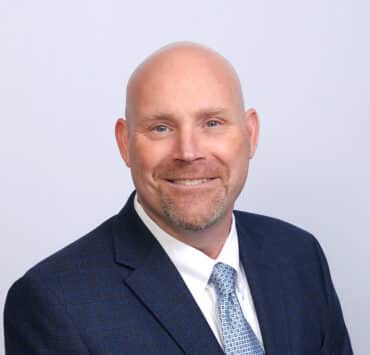Taimur Shah’s earliest memories are of him visiting his mother in the hospital after she was diagnosed with cancer. That experience put healthcare at the forefront of his life, a value that’s stuck with him ever since.
Today, Shah leads a healthcare practice as vice president of global healthcare solutions at WilsonHCG, an award-winning global leader in total talent solutions. There, he helps to create strategic growth in the healthcare industry in medical device markets and hospitals by ensuring organizations in the sector have access to top talent.
As the head of global healthcare solutions, he has a deep passion for service excellence that is fueled by his belief that our health and the health of those we love are the most important things in our lives.
“It’s not about filling open roles. I’m passionate about finding people who are empathetic, love what they do, and who will do right by this very critical industry,” he says.
But how do you do that amid a national shortage of healthcare workers that was worsened by the pandemic? Industry market analytics firm Mercer estimates that by 2025, the US will have a shortage of about 446,000 home health aides; 95,000 nursing assistants; 98,700 medical and lab technologists and technicians; and more than 29,000 nurse practitioners. At the beginning of the year, a Qualtrics survey of nearly 3,000 healthcare employees across 27 countries found that only 61 percent of respondents planned to stay in their job.
“It’s not about filling open roles. I’m passionate about finding people who are empathetic, love what they do, and who will do right by this very critical industry.”
Taimur Shah
As industry leaders tackle critical staffing challenges, Shah and his organization prioritize the objective: “the right talent versus the talent available right now.”
“Sometimes the talent available right now doesn’t translate into the best talent,” he says. “We’re comfortable having conversations with our clients in the healthcare space and saying, ‘We understand the urgency for hospital staff, but we can either focus on rushed talent today, who may or may not be a fit for the job, or we can go to the market with a proper recruitment strategy and find the best talent that’ll translate into the best experience and care for your patients in the long-term.’”
Shah and his team have been equally as supportive on the strategic workforce planning front, offering clients recommendations backed by real-time talent market intelligence to uplift their services. Sometimes that means providing strategic recommendations, such as supplementing long-term needs through acquisitions of other hospital groups to fill service gaps.
Other times, it is creating affiliations with vocational institutions and encouraging hospital leaders to speak directly with potential employees at job fairs (in person and virtual) and with graduates on campus. In either case, much of the team’s assistance has centered around getting leaders to understand the importance of proactivity. For Shah, proactivity is key to effectively navigating the staffing crisis.
“We need to understand that this is an ongoing crisis. The mass exodus of healthcare professionals during the pandemic only worsened shortages in an industry that was already experiencing critical skills shortages,” he says. “So, we need to look at how we can build sustainable, long-term talent solutions to get healthcare organizations up to speed with the demand in the market. It’s never going to be steady, but we need to match the pace of the exodus, the growing need, and the growth within the healthcare space in general.”
“We need to understand that this is an ongoing crisis. The mass exodus of healthcare professionals during the pandemic only worsened shortages in an industry that was already experiencing critical skills shortages.”
Taimur Shah
Educating hiring managers, who are the brand ambassadors for hospitals, is another important part of the equation in attracting the right talent.
Shah affirms all of these efforts are made possible by WilsonHCG’s collaborative environment and unique approach to talent acquisition, which he says, “generates a circle of knowledge and helps each team member understand their role in the recruitment process.” When they hold workshop sessions, everyone is included, and no idea is a bad idea. This collaborative approach has helped drive outcomes and camaraderie among team members.
“You learn from each other, become better at problem solving, [and] you get an idea of the bigger picture from different perspectives and individual experiences,” he says. “My team focuses on communication, decision-making, active listening, engagement, and this creates a form of accountability as a collective. Members of the healthcare team are subject matter experts in the healthcare space, but when I work with other people at WilsonHCG, their vast experience across other markets and sectors helps the team form better solutions for our clients as well.”


